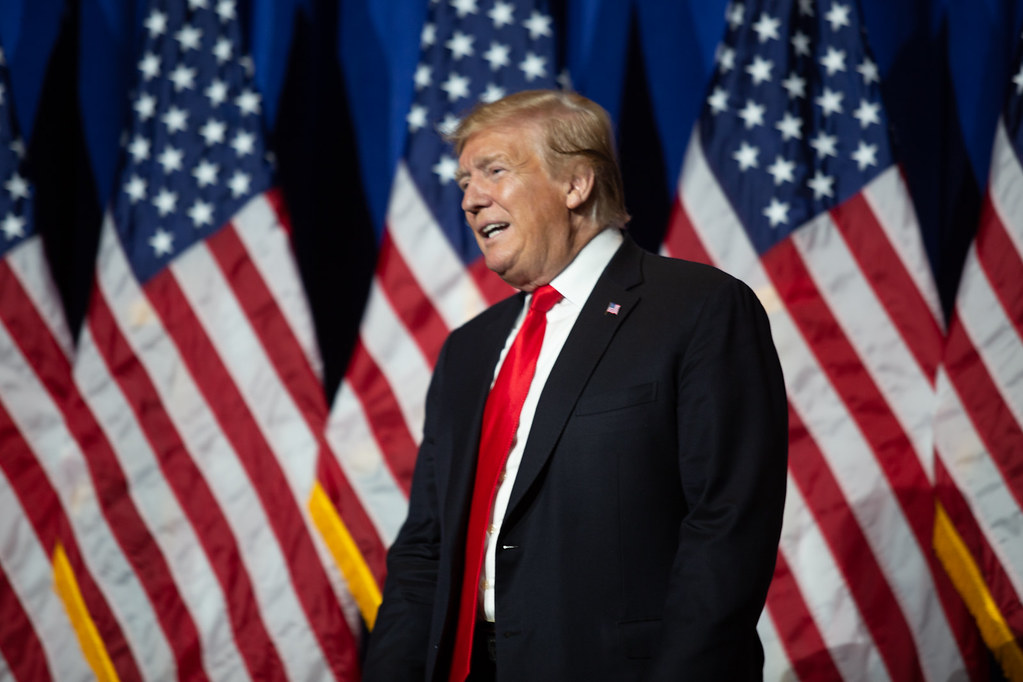Key Takeaways
- President Trump used his Truth Social platform to accuse Democratic military veterans of seditious behavior.
- He suggested the death penalty for actions he called “punishable by DEATH.”
- The targeted video reminded active-duty troops they must refuse unlawful orders under the Uniform Code of Military Justice.
- No lawmakers broke laws; they urged service members to follow the Constitution.
- Tensions rise as the National Guard deploys to cities facing protests over immigration policies.
Seditious Behavior in Trump’s Truth Social Posts
President Trump sharply criticized a group of Democratic veterans who released a video for active-duty troops. He claimed their message amounted to seditious behavior, even calling for capital punishment. His post read: “SEDITIOUS BEHAVIOR, punishable by DEATH!” This marks a major escalation from his earlier call to jail those lawmakers.
Video Reminder and Military Law
In their video, the Democratic veterans reminded soldiers of the Uniform Code of Military Justice. They said no one must carry out unlawful orders. They cited the Constitution and pledged to support any service member who refused an illegal command. The lawmakers in the video include retired Army officers with tours in combat zones. Yet none committed any crime.
Donald Trump’s accusation of seditious behavior ignores that the UCMJ itself demands lawful conduct. Service members must refuse orders that break federal law or threaten the Constitution. The video simply restated existing military rules. Therefore, legal experts say no new offense occurred.
Political Tensions and National Guard Deployment
Meanwhile, President Trump has ordered the National Guard into several cities. Governors deployed troops to help control protests against his immigration policies. Critics argue this move aims to intimidate dissent. They say it also ramps up tensions between federal and state powers.
Trump’s reference to seditious behavior in the same timeframe suggests he views all protest or dissent as a threat. He has repeatedly labeled critics “traitors” and called for “LOCK THEM UP.” Yet civil rights groups warn such rhetoric risks undermining free speech protections.
Media Confrontation Sparks Controversy
Earlier this week, Fox News host Martha MacCallum interviewed Representative Jason Crow, a retired Army Ranger who appeared in the video. MacCallum pressed him on whether reminding troops to follow lawful orders was out of line. Her line of questioning backfired when Crow calmly explained the video’s legal foundation.
Crow noted that the video promotes adherence to the Constitution. He said it strengthened morale by clarifying that the military cannot act outside the law. Viewers praised Crow for his composure and knowledge. Many also criticized Fox News for framing lawful advice as seditious behavior.
Understanding Reactions on Both Sides
Supporters of President Trump insist the Democrats crossed a line. They argue any call to question orders could sap military discipline. They view the video as politicizing the armed forces. Therefore, they believe the harsh reaction is justified.
On the other hand, constitutional scholars stress that the military oath binds service members to defend the Constitution, not any individual leader. They say the video merely reinforces a core principle: obey lawful orders only. In this view, Trump’s charges of seditious behavior are baseless.
What Does This Mean for Democracy?
This clash highlights deep political divides over presidential power and military loyalty. Some see Trump’s language as an escalation that could chill free speech. Others worry that any doubt in the chain of command undermines national security.
Moreover, Trump’s insistence on using terms like seditious behavior raises questions about the balance between security and liberty. The Founding Fathers feared too much executive power. They wrote the First Amendment to protect dissent. Critics say Trump’s threat of capital punishment for lawmakers crosses into authoritarian territory.
Trump’s next moves remain uncertain. He could double down on his accusations, push Congress for legislation, or shift focus to other issues. Meanwhile, the National Guard remains on standby in protest hotspots. As tensions simmer, both sides prepare for the next chapter in this political showdown.
FAQs
What counts as seditious behavior under U.S. law?
Seditious behavior involves actions that incite rebellion against government authority or undermine the Constitution. It is a serious federal crime but requires clear evidence of intent to overthrow the government.
Can military members refuse any order?
Service members must obey lawful orders. They must refuse orders that violate federal law or the Constitution. The Uniform Code of Military Justice provides guidelines for illegal orders.
Is Trump’s call for the death penalty legal?
No law allows the president to order execution for seditious behavior without due process. The Constitution guarantees legal rights, including trial by jury and appeal.
How does this conflict affect protests and free speech?
The dispute blurs lines between military discipline and civilian protest rights. Critics argue that labeling dissent as sedition threatens free speech. Supporters claim it protects military cohesion.
